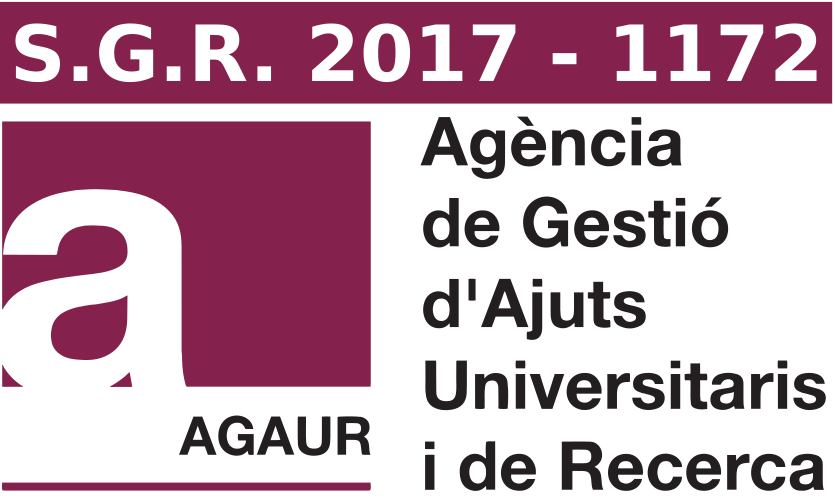
INCOME-INN
“INNOVATIONS IN INCOME GUARANTEE SCHEMES:
POLICIES, PILOTS, AND PROPOSALS”
KEYWORDS: Minimum income, basic income, poverty, social policy, wage supplements,
guaranteed income, social experiments, institutional design,welfare state, labour incentives
Founded Research project — 2020-2024 — Ministerio de Ciencia, Innovación y Universidades, R&D&I National Program, Ref.: PID2019-104801RB-I00.
Principal Investigator (IP): José A. Noguera
Members & Research Team: Manuel Aguilar Hendrickson; Borja Barragué Calvo; Jurgen de Wispelare; Joseba Zalakaín; Júlia de Quintana Medina; Alex Giménez and Emma Rose Álvarez Cronin.

Despite the considerable projection of debates on the reform of income guarantee schemes in the media and the political agenda, key issues about the feasibility of the different proposals under scrutiny are still underexplored in the academic and social-scientific literature.
The main hypothesis of the project is that recent developments in terms of actual policy reforms in minimum income programs, experimental pilots, and political proposals provide valuable evidence to answer research questions about the feasibility of innovations in income guarantee schemes. Insights from these developments and from behavioural social science affect five dimensions of feasibility: strategic, institutional, sociopsychological, behavioural, and economic. A theoretical typology will be used to classify innovations that depart from conventional minimum income schemes into three different models of income guarantee: wage supplements, guaranteed income, and universal basic income. These models will be deconstructed in different dimensions in order to assess how far different policy reforms, pilots, or political proposals are approaching one or the other, and how do they fare comparatively in the five dimensions of feasibility. An original set of indicators and different sources of empirical evidence will be used in order to answer these research questions.
The project aims to present the results of the different WPs in several scientific articles (between 10 and 15 in four years) in high impact journals such as Journal of European Social Policy, International Journal of Social Security, Social Policy and Administration, Journal of Social Policy, South European Society and Politics, Social Problems, International Journal of Social Welfare or Social Service Review.
Some of the articles, specially those focusing on the case of regional MI schemes in Spain, will be also published in high quality Spanish journals such as Revista Española de Investigaciones Sociológicas or Revista Internacional de Sociología. Some of the expected scientific contributions of the project will consist on:
- The construction of a methodology and a set of indicators in order to assess different dimensions of innovation in income guarantee
- schemes.
- The comparative analysis of evidence from different surveys on attitudes towards income guarantee policies.
- The comparative analysis of different sources of behavioural evidence (pilots, actual policy reforms, and lab/survey experiments).
- The comparation between estimations from the ECV dataset and microsimulation results.
Social and economic impact Income guarantee schemes and innovative proposals such as UBI have aroused considerable attention in the media as well as in the political agenda in recent years. Public opinion seems to be more aware of discussions and developments regarding this area of social policy and its role in welfare states. This growing interest may be mobilized and used for the dissemination of the projects goals and results. The research team will carry out a series of actions aimed at placing the project on the media and the public agenda. This will include the presence in social networks, the publication of short articles in national press, and the organization of informative sessions with selected social agents.
The scientific results of the project might be applied to derive recommendations for different institutions involved in the implementation of income guarantee programs and the design of pilot experiments in this area. Specific actions will be carried out in order to inform these agents not only of the results of the project but also of the policy recommendations generated from them. Specific information sessions will be held on the objectives and results of the project with some key public officers in charge of regional minimum income schemes in the selected Autonomous Communities, and their collaboration will be sought in order to obtain relevant data.
Finally, gender perspective is relevant for the analysis, design and implementation of any minimum income guarantee program. The scientific-social literature shows that there may be significant differences between men and women in, for example, support for different income guarantee policies, as well as in work incentives and the behavioural implications of these designs. Similarly, the situation of subordination of many women in the family and the labour market, especially in low-income groups, may lead to adopt measures in the design of income guarantee programs that seek to strengthen women’s position and autonomy. In short, the project will integrate aspects such as these into its analysis and will aim to make some policy-makers more sensitive in that regard.

